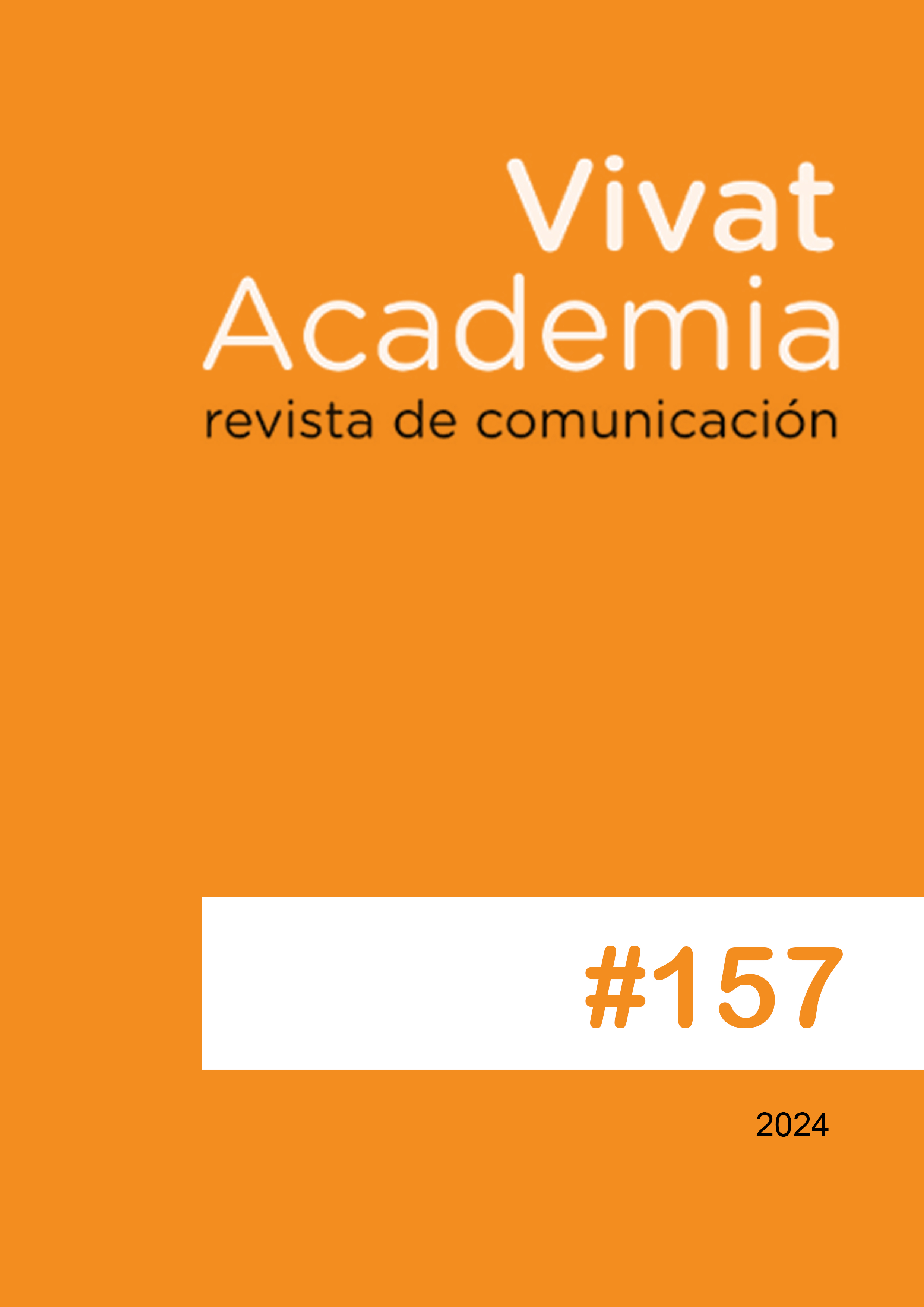From Outbreak to Recovery: An Observational Analysis of the Romanian Government's Online Communication during and post-COVID-19
Main Article Content
Abstract
Introduction: The expanding digital era has transformed government communication, especially during crises like the COVID-19 pandemic. This study aims to comprehensively evaluate the digital communication strategies of the Romanian Government during the pandemic and its aftermath, emphasizing the importance of effective communication in times of crisis. Methodology: For this comprehensive analysis, quantitative and qualitative techniques were combined. Data were collected from Facebook using FanPageKarma.com and processed in RStudio. Key aspects were examined, including the categorization of communication phases, posting frequency, metrics of public interaction (comments and actions), and the analysis of the overall sentiment tone. Results: The findings reveal that during the COVID-19 crisis, the Romanian Government dedicated 42.3% of its 3,465 Facebook posts to the virus. This percentage significantly decreased to 1.46% after the crisis, indicating a thematic shift in government communication. Public engagement also decreased post-pandemic, with a shift towards global narratives, especially tension between Ukraine and Russia. The sentiment analysis shows an overwhelmingly positive language aimed at inspiring trust and hope. Conclusions: This study highlights that, following the COVID-19 crisis, the Romanian Government adapted its digital communication, experiencing lower public engagement but maintaining a positive tone. This underscores the importance of effective government communication during and after crises, a critical element for ensuring public trust and social cohesion. These findings offer valuable lessons for government communication management in times of uncertainty and emphasize the need for continuous adaptation in a constantly evolving digital world.
Downloads
Article Details

This work is licensed under a Creative Commons Attribution-NonCommercial-ShareAlike 4.0 International License.
The main author must deliver the letter of transfer of copyright, according to the model provided by Vivat Academia, Revista de comunicación, which declares the transfer of copyright to the journal and make explicit the rights of authors regarding the dissemination and use of the manuscript once published.
Creative Commons Attribution/Non Commercial 4.0 International
References
Aksak, E. O., Dikmen, E. S., & Kilic, N. P. (2023). Managing Pandemic Communication Online: Turkish Ministry of Health’s Digital Communication Strategies During COVID-19. International Journal of Communication, 17, 1551–1572. USC Annenberg Press.
Awobamise, A. O., Jarrar, Y., & Okiyi, G. (2021). Evaluation of the Ugandan Government’s Communication Strategies of the COVID-19 Pandemic. Online Journal of Communication and Media Technologies, 11(2). Bastas Publications. https://doi.org/10.30935/ojcmt/10824
Azudin, N., Hussin, R., & Rahman, S. H. A. (2023). Social media approach to crisis communication during the COVID-19 pandemic: A case study of Saudi Arabia. Search - Journal of media and communication research, 15(2), 67-82. Taylors Univ, South East Asia Research Centre Communication & Humanities.
Castillo-Esparcia, A., Fernandez-Souto, A.-B., & Puentes-Rivera, I. (2020). Political communication and COVID-19: Strategies of the Government of Spain. Profesional de la informacion, 29(4). Ediciones Profesionales Informacion SL-EPI. https://doi.org/10.3145/epi.2020.jul.19
Croucher´s, S. M., Spencer, A., Bustamante, S., Nguyen, T., & Gómez, O. (2023). COVID-19 and government trust: A spiral of silence analysis in South America. International Communication Gazette. Sage Publications Inc. https://doi.org/10.1177/17480485231174424
Drummond, B., & Bozanta, A. (2022). Exploring Public Responses to Government’s COVID-19 Pandemic Policies. Online Journal of Communication And Media Technologies, 12(2). Bastas Publications DOO. https://doi.org/10.30935/ojcmt/11829
Gagu, E., Rus, M., & Tasențe, T. (2021). Stages of crisis communication in public administration. Case study Romanian Ministry of Transport. Technium Social Sciences Journal, 19, 252-267. https://doi.org/10.47577/tssj.v19i1.3336
Jockers, M. (2023). Syuzhet: Extracts Sentiment and Sentiment-Derived Plot Arcs from Text (1.0.7) [Computer software]. https://acortar.link/nrQurM
Li, Y., Chandra, Y., & Fan, Y. (2022). Unpacking government social media messaging strategies during the COVID-19 pandemic in China. POLICY AND INTERNET 14(3), 651-672. https://doi.org/10.1002/poi3.282
Proellochs, N., & Feuerriegel, S. (2021). Sentiment Analysis: Dictionary-Based Sentiment Analysis (1.3-4) [Computer software]. https://acortar.link/XJBXBH
Syahputra, I., Ritonga, R., Purwani, D. A., Masduki, Rahmaniah, S. E., & Wahid, U. (2021). Pandemic politics and communication crisis: How social media buzzers impaired the lockdown aspiration in Indonesia. Search-Journal of Media and Communication Research, 13(1), 31-46. Taylors Univ, South East Asia Research Centre Communication & Humanities.
Tasențe, T. (2014). Comunicarea politică prin social media și reacțiile publicului online. Editura Universitară.
Wang, Q. (2022). Using Social Media for Agenda Setting in Chinese Government’s Communications During the 2020 COVID-19 Pandemic. Journal of Communication Inquiry, 46(4), 373–394. Sage Publications Inc. https://doi.org/10.1177/01968599221105099
Zhou, A., Liu, W., & Yang, A. (2023). Politicization of Science in COVID-19 Vaccine Communication: Comparing US Politicians, Medical Experts, and Government Agencies. Political Communication. Taylor & Francis Inc. https://doi.org/10.1080/10584609.2023.2201184
Artículos relacionados
Martínez Solana, Y., & Martín García, T. (2021). Análisis comparativo de la gestión gubernamental de comunicación de crisis de la COVID-19, vacas locas y atentados del 11M. Historia y Comunicación Social, 26(Especial), 61-73. https://doi.org/10.5209/hics.74242
Martínez-Sánchez, J. A. (2022). Prevención de la difusión de fake news y bulos durante la pandemia de COVID-19 en España. De la penalización al impulso de la alfabetización informacional. Revista de Ciencias de la Comunicación e Información, 27, 15-32. https://doi.org/10.35742/rcci.2022.27.e236
Núñez-Gómez, P., Abuín-Vences, N., Sierra-Sánchez, J., & Mañas-Viniegra, L. (2020). El enfoque de la prensa española durante la crisis del COVID-19. Un análisis del framing a través de las portadas de los principales diarios de tirada nacional. Revista Latina de Comunicación Social, 78,41-63. https://doi.org/10.4185/RLCS-2020-1468
Román San Miguel, A., Sánchez-Gey Valenzuela, N., & Elías Zambrano, R. (2022). Los profesionales de la información y las fake news durante la pandemia del COVID-19. Vivat Academia, Revista de Comunicación, 155, 131-149. https://doi.org/10.15178/va.2022.155.e1312
Toro González, S., & Pérez-Curiel, C. (2021). Populismo político en tiempos de COVID. Análisis de la estrategia de comunicación de Donald Trump y Boris Johnson en Twitter. Revista de Comunicación de la SEECI, 54, 1-24. https://doi.org/10.15198/seeci.2021.54.e700





